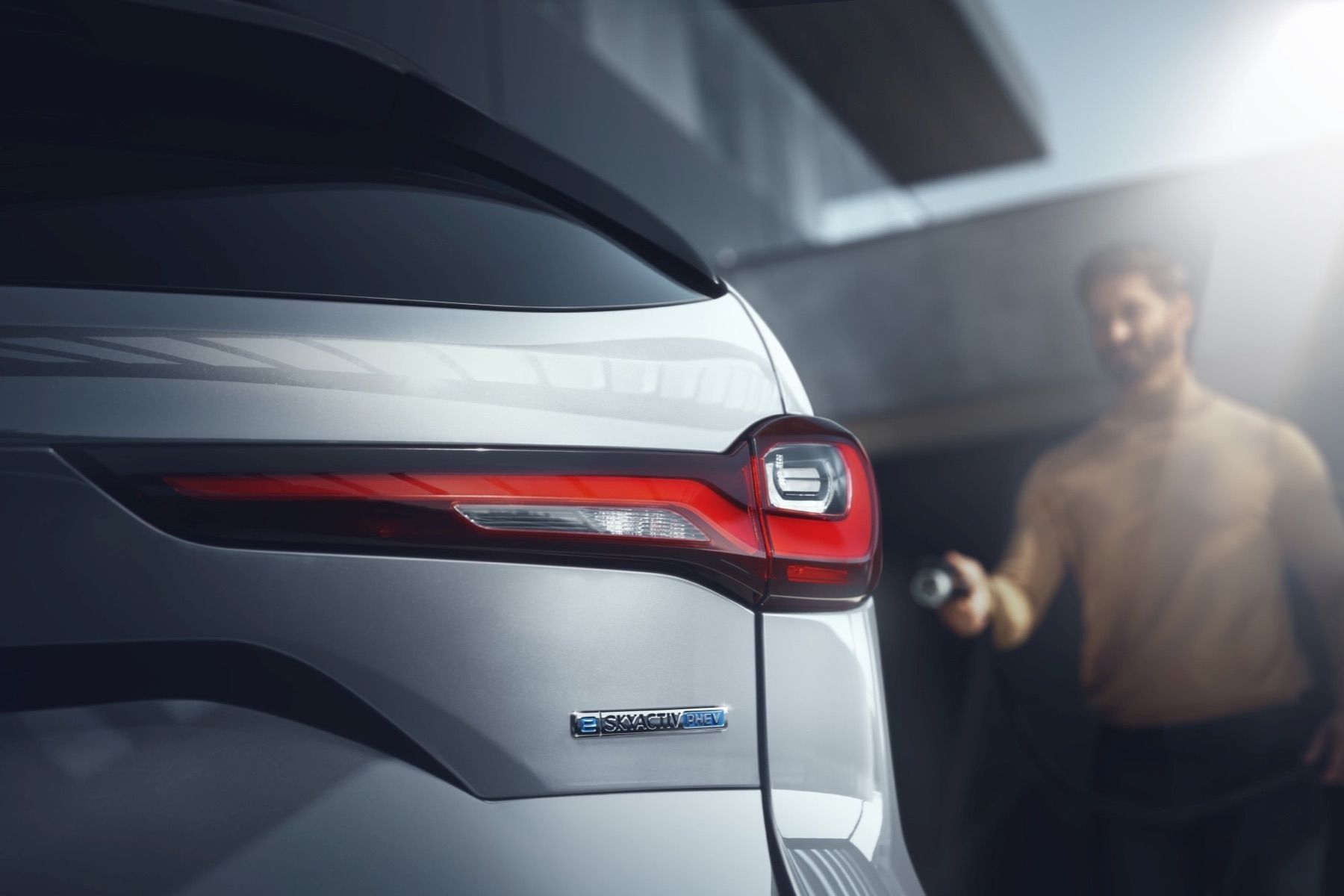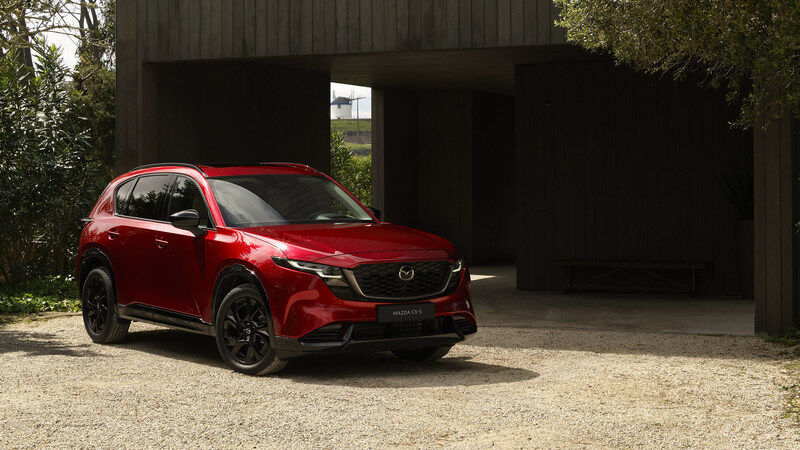What Is A Plug-In Hybrid? Mazda's New 2024 CX-90 Will Be Available As A PHEV
December 13 2022, Centennial Mazda

Unlike a vehicle that is powered exclusively by a conventional internal combustion engine, and unlike an electric vehicle that makes power by batteries alone, a plug-in hybrid electric vehicle does both. And it also seamlessly blends these technologies into one powertrain.
Often labelled as PHEVs, short for plug-in hybrid electric vehicles, plug-in hybrids use batteries that are bigger than what you'd find in a conventional hybrid vehicle (which blends small batteries with a conventional engine but can't truly function as an electric vehicle) and gas-fired engines that are typically smaller than what you'd find in a conventional vehicle.
Unlike a hybrid, which is actually designed to be recharged by your vehicle's internal combustion engine, a PHEV's batteries are actually charged the same way you would charge an electric vehicle: by plugging it in, either to a conventional wall outlet, an at-home Level 2 charger, or at a public charging station.
But as opposed to a purely electric vehicle, a plug-in hybrid electric vehicle "runs on electric power until the battery is nearly depleted," according to the U.S. Department of Energy, "and then the car automatically switches over," and uses the conventional engine.
For most PHEVs, the goal is to install a battery large enough to supply a sufficient amount of range for typical daily driving, say 40-60 kilometres or more. This requires far less cost than a full electric vehicle, and it also removes the range anxiety associated with a full electric. Why? Because there's a conventional gas-fired engine backup that only kicks on when required.
This is Mazda's plan for the range-topping 2024 Mazda CX-90, which is expected to arrive in Mazda showrooms in the first-half of 2023. Although the CX-90 will be sold with a conventional internal combustion engine, Mazda Canada confirmed today that a PHEV version will be available. And because this is Mazda, it will be a performance-oriented plug-in hybrid.
That means more power. More power paired with a dramatic reduction in energy consumption. It's called the e-Skyactiv powertrain.
- There are added bonuses besides the ability to operate largely on battery power in the new CX-90. Plug-in hybrids are eligible for up to $5,000 in federal government rebates (iZEV Program) plus an additional $3,250 from the PEI provincial government (Universal Electric Vehicle Incentive).
- PHEVs with 50 kilometres or more of electric range are eligible for a $5,000 federal rebate and a $3,250 provincial rebate. PHEVs with fewer than 50 kilometres of range are eligible for a $2,500 federal rebate and a $3,250 provincial rebate. We expect to see the CX-90 PHEV achieve in excess of 60 kilometres of range.
- Incentives are administered at the point of sale – they require no input or application processes from the buyer. The incentive is applied after taxes and fees.
- Even leased vehicles are eligible: leases with a 48-month (or greater) duration receive the full rebate; shorter leases function on a pro-rated basis.
- Transport Canada's eligibility requirements have evolved to presently include SUVs with a base price of $60,000 or less, which encompasses "higher priced trims of these vehicles, up to a maximum of $70,000."
As Mazda releases more info on the CX-90, you'll find updates right here. We can't confirm, but we expect the CX-90 PHEV powertrain to be similar to Europe's CX-60 PHEV, which uses a 2.5-liter four-cylinder engine combined with a 129 kW electric motor and a 17.8 kWh battery. It all adds up to a 323 horsepower e-Skyactiv powertrain with 369 lb-ft of torque, including enough electric juice to hit 100 kilometres per hour without firing up the gas engine.
Welcome to the future.





